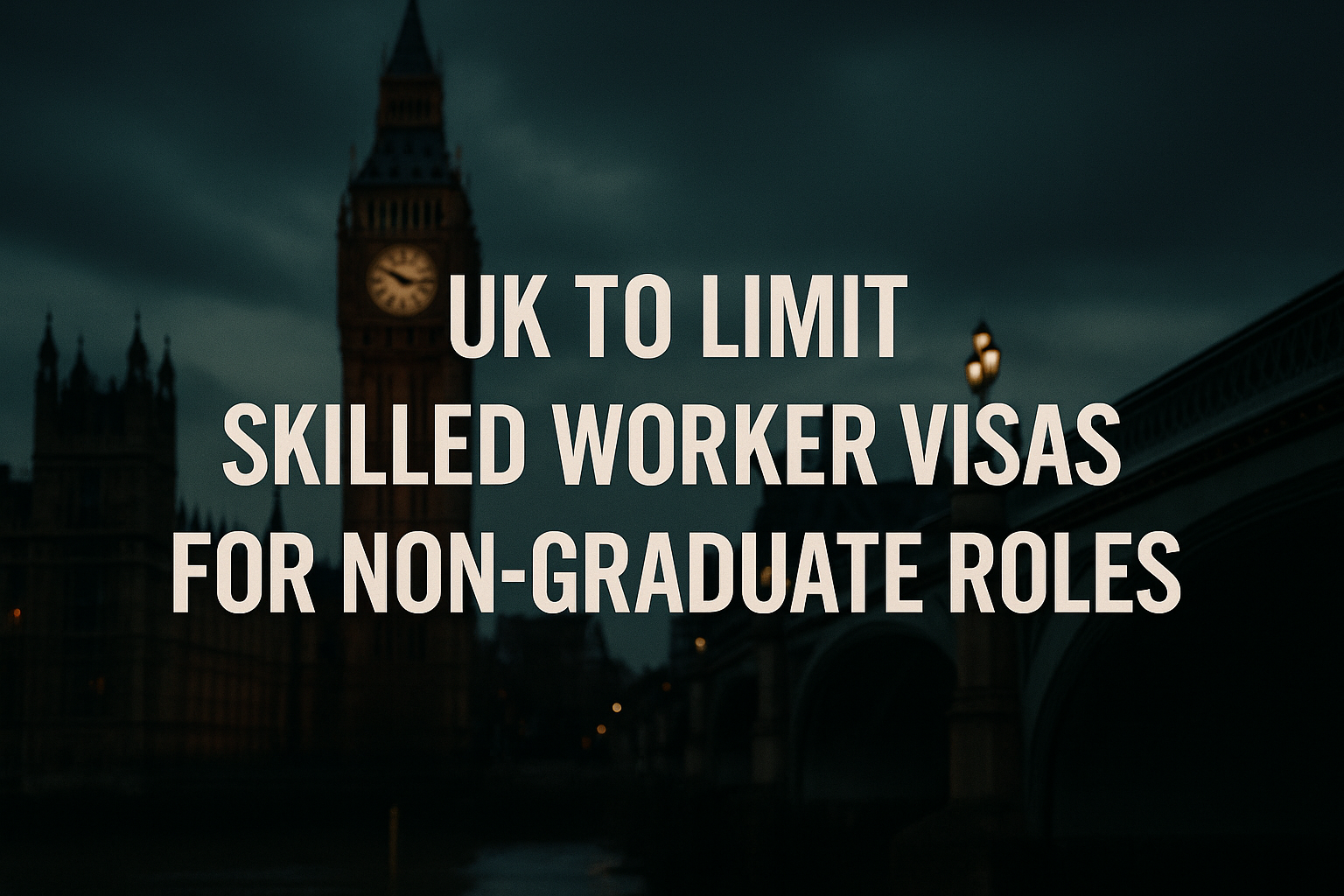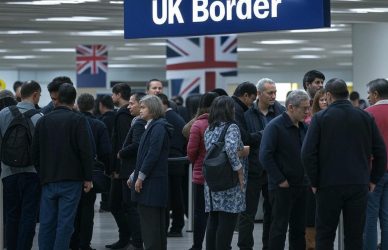The UK government has unveiled a new strategy aimed at reducing net migration, with significant changes to the Skilled Worker visa route. One of the central reforms includes restricting work visas to roles that meet graduate-level qualifications or higher, effectively tightening entry for jobs deemed lower-skilled.
Visa Restrictions for Non-Graduate Roles
Under the new rules, the Skilled Worker visa will primarily be available to positions rated at RQF Level 6 or above—the equivalent of a UK bachelor’s degree. This replaces the current threshold of RQF Level 3, roughly the level of A-level qualifications.
For jobs classified below RQF Level 6, visas will only be granted under strict conditions. The Home Office will allow these roles to be filled by overseas workers only if:
- There is strong, documented evidence of labour shortages in the sector.
- The role is considered critical to the UK’s industrial strategy.
- Employers demonstrate clear plans to recruit and train workers from within the UK.
See official Skilled Worker visa eligibility
Salary Threshold Increase
Another key change is the rise in the general salary threshold for sponsored Skilled Worker roles—from £26,200 to £38,700 per year. This is designed to ensure migrant workers are brought in for high-value, high-need roles.
There are exceptions for certain sectors and job roles, including health and care workers.
View Skilled Worker visa salary requirements
Replacement of the Shortage Occupation List
The government will also retire the Shortage Occupation List and introduce the new Immigration Salary List (ISL). This list will identify roles eligible for a reduced salary threshold, but only in cases where acute shortages are supported by robust labour market data.
Read about the Immigration Salary List
The Labour Market Evidence Group
To support evidence-based policy, the Labour Market Evidence Group will be established. It will include experts from industry, education, and government, alongside the Migration Advisory Committee (MAC). This group will assess where the UK is overly reliant on overseas labour and help steer investment into domestic training.
A Push for Domestic Workforce Development
Home Secretary Yvette Cooper stated the aim is to “restore control and order to the immigration system” while fostering UK-based talent. The government hopes these reforms will help reduce dependency on international recruitment by addressing skills gaps within the domestic workforce.
However, concerns have been raised by leaders in the care and hospitality sectors, where thousands of current workers are from overseas. Without government support to improve pay and conditions, some fear the reforms could lead to staffing shortages and business closures.
See full government factsheet on migration reform
Final Thoughts
These visa changes mark a major shift in the UK’s immigration policy. Employers relying on overseas labour—particularly for non-graduate roles—must act now to develop recruitment strategies that focus on upskilling the domestic workforce.
For more updates, visit the UK Government Immigration Page regularly.
READ MORE:
- UK to Tighten Visa Rules for Countries With High Asylum Claims
- UK Work Visa Sponsorship: Eligibility and Application Guide
- Comprehensive Guide to Companies That Sponsor Visas in the UK





